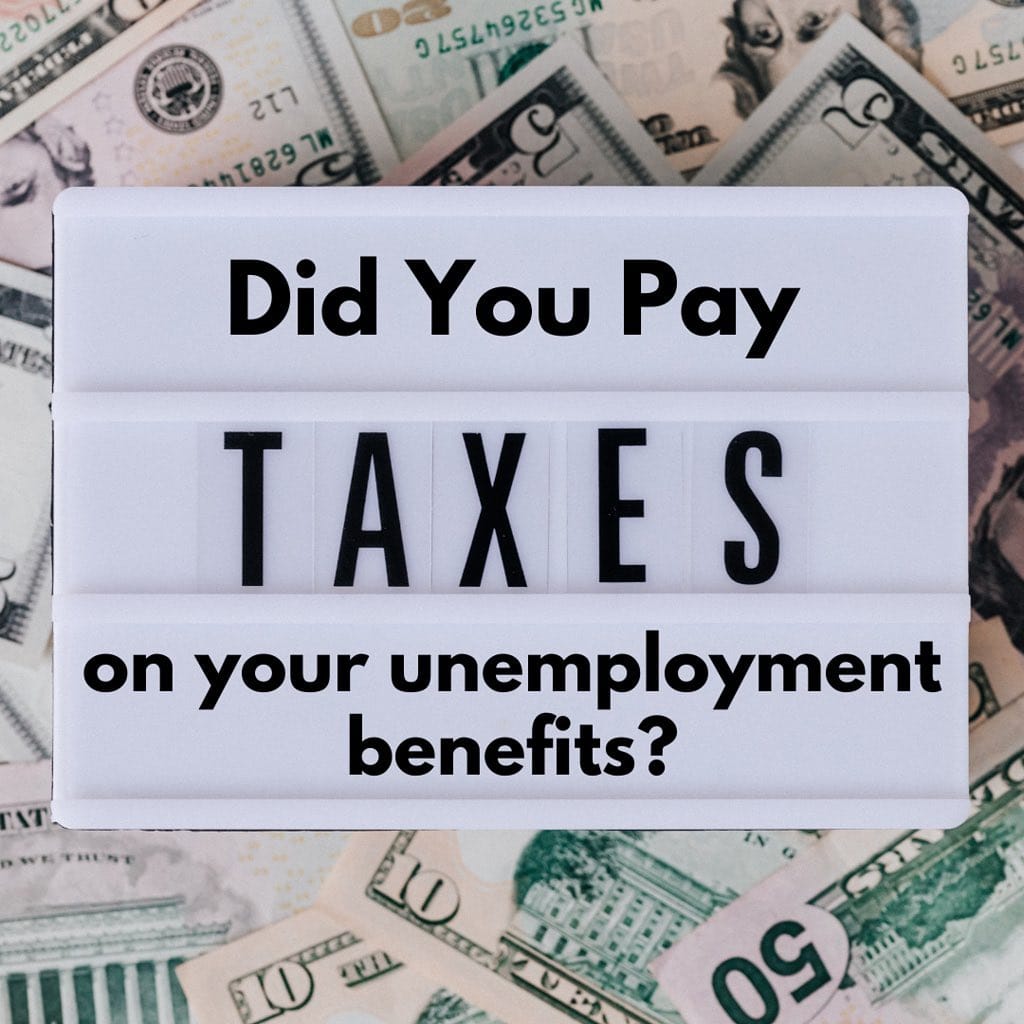New York is where many go to make it big and chase their dreams. Be it in the corporate world, the tech world, or in the world of art and performance, millions flock to New York City for work.
There are many reasons why you might be considering working in New York City and living elsewhere.
For one, the city is just as expensive as it is iconic. New York City is one of the most expensive cities in the world as regards rent.
So as much as you may like to be part of the hustle and bustle, you might not be able to afford to live at the center of it.
On the other hand, you may be able to afford it but would rather go home to a slower-paced environment and quieter weekends.
Or living in New Jersey might just make more sense for you and your family.

For whatever reason, you might be considering living in New Jersey and working in New York. If you are, you’ll probably want to know how such a decision will affect your taxes.
Filing taxes is a sore spot for most people, with many finding it too complicated or time-consuming. But you definitely will not want to find yourself paying penalties for taxes you didn’t know to file.
There are some great places to live in new jersey close to New York City, making it easy to commute to New York City from New Jersey.
New Jersey is the most obvious choice for living close to New York but not in it. On that note, here’s everything you need to know about taxes if you choose to work in New York but live in New Jersey.
How To Know If You Qualify As A Resident In New Jersey Or New York
If you live in one state and work in another, you might spend a lot of time commuting and even residing in both states. Which begs the question of which is your resident state.
Or what if you have multiple residences across different states; which one do you file taxes from? Here’s where a domicile comes in.
You can legally have many residents but only one domicile. Your domicile must be your principal residence or the place you return to and spend more time in than any other residence.
Tax authorities can look at other factors like where your children’s school or clubs you attend etc. as further proof of your domicile.
Once your domicile has been established in a state, that state has the right to tax you on all your earnings even if they are not from within the state.
Where To File Your Taxes
Generally, you are to file taxes in the state where you earn your money which most times is assumed to be the state you are resident in.
If you live in one state and work in another, the rules change depending on the states in question. Some states have reciprocal tax agreements with other states. This means that you only have to file taxes in the resident state.

If you live in New Jersey and work in New York, New Jersey becomes your resident state, while New York is your work state.
While New Jersey does have a reciprocal tax agreement with Pennsylvania, it, unfortunately, does not have one with New York.
This means that you’ll have to file taxes in both states.
Tax Returns You Need To File
You’ll have to file a resident tax return in your home state (New Jersey) and a non-resident tax return in your work state (New York).
For the New York tax return, you only have to list the income you made in New York, while your New Jersey tax returns should list all your sources of income within or out of New Jersey.

The New Jersey Resident Income Tax Return is filed on Form NJ-1040, while the New York Non-resident Income Tax Return is on Form IT-203.
Keep in mind that even though our focus is more on filing returns for income made from working in New York, if you happen to make money by other means while you’re in New York, you’ll have to file for that too.
So for example, if you sell a property in New York, you are still subject to the New York tax rules that apply.
So How Much Tax Do You End Up Paying?
Seeing as you have to file tax returns in both states, does that mean you’ll have to pay tax on the same income twice?
No. What usually happens is, you receive a tax credit on your New Jersey returns for taxes you already paid in New York.
This doesn’t mean that you’ll be credited the exact amount you were taxed on your New York income. Instead, the tax authorities in New Jersey use a formula to calculate a percentage they’re willing to credit you.
Other taxes that may concern you
Commuter Tax
The Metropolitan Commuter Transportation Mobility Tax is the tax New Yorkers pay to maintain public transport in New York.
Knowing the number of people who commute to, from, and within New York, it is a very important tax to collect. But how does it affect you?

Well, if you’re self-employed and earning over $50,000 (net profit) a year in New York, the Metropolitan Commuter Transportation Mobility Tax applies to you. You’ll have to pay a commuter tax of 0.34% of your net earnings.
If you’re not self-employed and your employer provides you with a W2, then it is your employer’s responsibility to pay the commuter tax.
Unemployment Tax

New Jersey will not tax your unemployment benefits, but you’ll still have to pay federal taxes on them. New York, on the other hand, does tax unemployment benefits for non-residents. So, don’t forget to report these benefits on your New York tax return.
Charitable donations
All taxpayers are now eligible for a charitable contribution deduction of up to $300 ($600 for married couples)
What If I Work Remotely?
For most states, if an employee of a state works remotely from another state, the employee only has to pay taxes in their resident state. But with the increase in remote work since 2020, some states have begun adopting the Convenience of Employer Rule.
With the Convenience of Employer Rule, employees of a state working remotely in another state are still liable to tax laws from their work state.
New York is part of the states that have adopted the Convenience of Employer Rule. So, if you live in New Jersey and work remotely for a New York employer, you will still have to file New York tax returns.
There are some exceptions to the Convenience of Employer Rule, so you might still stand a chance of escaping double taxation.
If you can prove that your work must be performed remotely, you’ll only have to file in New Jersey. For instance, if the work from your New York employer physically requires you to be in New Jersey, then that counts as an exception.
But if you’re working remotely, just because it is convenient for you and your family, you are not exempted. Remember that the exception depends on if you absolutely must work remotely.
If there’s any possible way you can work physically in New York, it no longer counts as an exception.
The ‘bona fide employer office’ is another exception to the Convenience of Employer Rule that can apply to New York workers.
If your home office meets the requirements and is regarded as a bona fide employer office, you don’t have to file for taxes twice.
To be regarded as a bona fide employer office, your home office must satisfy either:
- The primary factor or
- A minimum of four secondary factors and three other factors.
Primary Factor
The primary factor is that the home office houses or is located near specialized facilities that can’t be provided at the employer’s place of business.
Secondary Factors
- The home office is part of the requirements for employment.
- The employer has a bona fide purpose for the home office location.
- The employee performs core tasks from the home office.
- The employee has meetings with clients and handles them regularly at the home office.
- The employer does not provide the employee with designated office space at the employer’s places of business.
- The employer covers the cost of all expenses of the home office.
Other Factors
- The employer keeps a separate telephone line for the home office.
- The home office address is listed on business letterhead.
- The employee uses a specific area of the home solely for business purposes.
- The employee keeps inventory of products or samples at the home office.
- Business records are kept at the home office.
- The home office uses a sign showing that it is an employer’s place of business.
- Advertisement for the employer lists the home office.
- The home office of the employee has business insurance.
- The employee has the right to receive home office expense deductions.
- The employee is not a company officer.
What If I Freelance From New Jersey, But My Clients Are In New York?
If your freelance work does not require you to be physically present in your client’s offices (in New York), then technically your income is New Jersey Income, and you only need to file New Jersey tax returns.
The same holds if you have cause to attend meetings in New York but still do most of the work from New Jersey.
Other Taxes
The decision to live in New Jersey and work in New York might be cheaper on your taxes overall. For instance, the sales tax in New York City is currently 8.875%, while the sales tax rate in New Jersey is 6.625%.
Also, in addition to state taxes, New York City imposes a city tax on its residents. The lowest tax rate is 3.078% which rises to 3.876% if your annual income exceeds $50,000.
Although living in New Jersey eliminates the need to pay New York city tax, the New York state tax can still be costly.
The state tax in New York begins at 4% and can reach 8.82%, while in New Jersey, rates begin at 1.4% and can reach 11.8% if you earn more than $5,000,000.
Some Benefits Of Living In New Jersey While Working In New York
Comparable Commute Time
Depending on what part of New Jersey you live in and what part of New York you work in, the commute time could even be shorter than some New York to New York commutes. If you live around the northern portions of New Jersey, the commute to work could be as little as 30 minutes.
However, if you choose to live further inside New Jersey, commute times might be longer. For instance, Princeton, New Jersey, is a little over an hour from Manhattan. That’s longer than the average commute time within New York.
Cheaper Cost of Living
One of the more obvious advantages of living in New Jersey as opposed to New York is the cheaper cost of living. New York is part of the most expensive states in the United States; everything is expensive.
You can save several costs on housing, schools, tax, recreation, and so on by living outside the state. On the other hand, New York also has one of the highest average incomes in the country.
So you can enjoy making more in New York but spending less in New Jersey.
A slower-paced life
Not everyone is cut out for the permanent hustle and bustle of the Big Apple. And if you were, your family might not be. New Jersey offers a more suburban feel and less of the craziness of the big city.
You can come home on weekends or holidays to enjoy some relative peace with your family while still knowing New York is a stone’s throw away.
The best part is that you and your family can cross over to New York at any time. Maybe for a fun day or week or weekend, but New Jersey would still be home sweet home.



